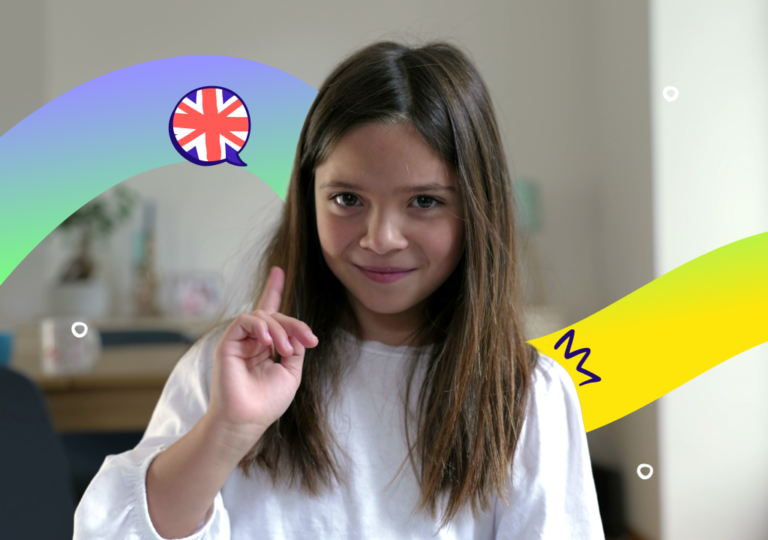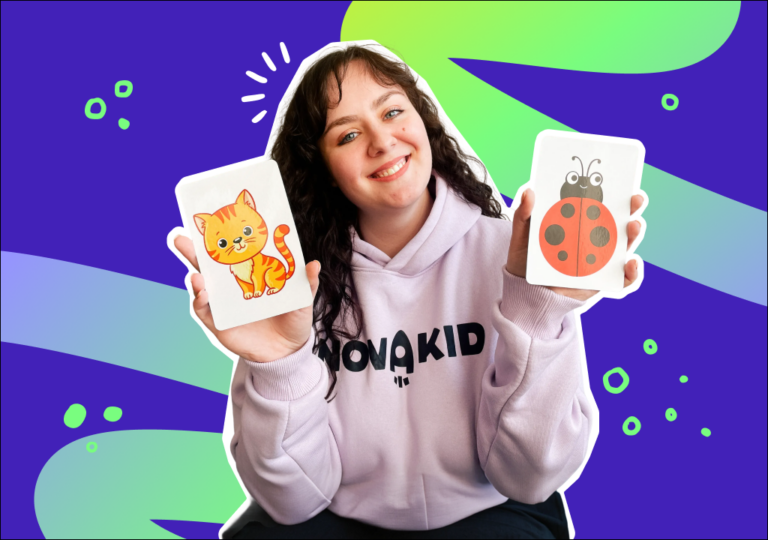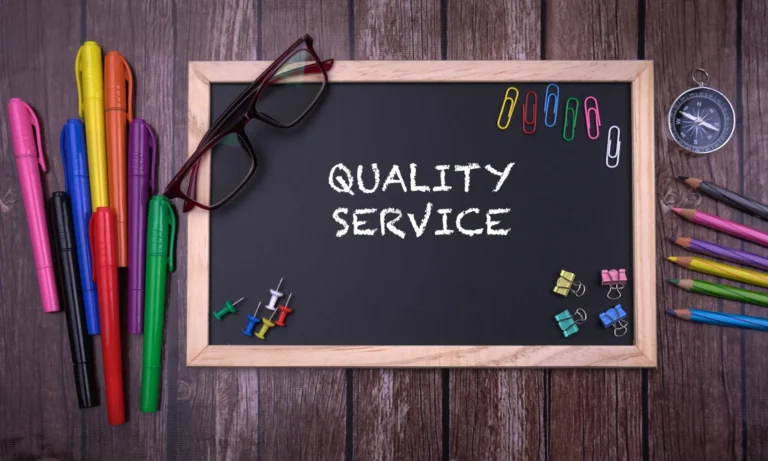Novakid online school offers three of the best ways to spend quality time with children. Need ideas? Find out all of them in the article!
The Best Age to Start Learning English with Novakid
- Starting early has benefits. Young children learn pronunciation and vocabulary more naturally, and early learning also supports memory, creativity, and problem-solving skills.
- Choose the right age based on your child. Consider your child’s interest, motivation, learning style, exposure to other languages, and family support to decide when they are ready to start online lessons.
- Make learning fun and consistent. Structured lessons and regular practice help children of all ages enjoy learning English and make steady progress.
Novakid is an online English school that makes learning fun and easy for children. The goal is to help kids feel confident in English while enjoying lessons with friendly teachers. Novakid combines live classes with games and activities, bringing the classroom experience right to the home.
Starting to learn a language at a young age can be very helpful; the younger you are, the easier it is to learn another language. Kids who begin early often learn pronunciation faster, understand grammar more naturally, and get better at speaking and listening.
This brings up an important question for parents: “At what age is it best for children to start with Novakid?” Today, we’ll look at why starting early is helpful and give tips on when your child might be ready to begin learning English online.

Why Age Matters in Language Learning
The age at which a child starts learning a language can make a big difference. Young children’s brains are very flexible, which makes it easier for them to pick up new sounds, words, and grammar naturally. Starting early gives kids a head start in learning and understanding how the language works.
Learning a language at a young age also brings other benefits too! Early learners often develop better memory, problem-solving skills, and creativity, which can help in school and everyday life. These cognitive advantages make learning English not just about language, but also about thinking and learning in new ways.
There are also differences between early learners and older children. Younger kids tend to absorb language through play, songs, and daily routines, while older children may need more structured lessons and practice. Understanding these differences helps parents and teachers choose the right approach for any age.
Recommended Starting Ages for Novakid
Now, let’s discuss the best age to start learning English with Novakid. Novakid organizes students into levels that match both age and skill, helping children learn at a pace that’s right for them.
- PRE-K (Beginner): 4–5 years old
Novakid welcomes its youngest learners at age four. At this stage, lessons are playful and focus on listening and understanding through games, songs, and activities.
- JUNIORS (Level 1): 6–7 years old
Young school-age children begin lessons while still enjoying interactive learning. This age is perfect for practicing speaking, listening, and simple writing.
- STARTERS (Level 2): 8–9 years old)
Children start building reading and writing skills while improving their speaking and comprehension in a more structured way.
- MOVERS (Level 3): 10–11 years old)
Students become more confident and independent in their English, tackling longer sentences and more complex grammar.
- FLYERS (Level 4): 11–12 years old)
Older children focus on goal-oriented learning, preparing for exams, and refining their skills for school and real life.
Starting young gives preschoolers the chance to learn naturally through play, which builds a foundation. School-age children benefit from structured lessons that develop skills. Older children and teens can focus on reaching specific goals and preparing for tests. This system ensures that children at every stage get lessons that match their abilities and needs!
Factors to Consider When Choosing the Right Age
After looking at recommended starting ages, it’s important to think about what works best for your child. Every child is different, and there are factors that can help decide the right time to start learning with Novakid.
A child’s interest and motivation are a good starting point; kids who are curious and excited about learning tend to progress faster. Plus, exposure to other languages can also affect how quickly they pick up English.
Parents should also consider their child’s learning style and attention span, as some children do better with short, playful lessons while others enjoy longer, structured activities.
Finally, family schedule and support are important so that children can attend online lessons consistently and get help when needed.
Tips for Getting Started
Once you’ve chosen the right age for your child, the next step is getting started with Novakid. Parents can help by preparing their child for online classes by setting up a quiet learning space, checking internet and device readiness, and explaining what to expect in a fun way.
The key is to keep learning consistent while making it enjoyable, so children look forward to practicing English every day. If you’re ready to help your child start their English journey, book a trial lesson with Novakid today and see how fun and effective online learning can be!
A survey of over 130 English teachers reveals why English classes still matter for kids in the age of AI.
Choosing skincare for our children is not a mindless decision. Products must both be safe and effective, for their health and their skin.
What happens when teachers, not algorithms, shape learning? Discover what educators and research reveal about AI English learning, and what it means for children.
Post-pandemic boom of online courses, including English courses for children, is a little confusing for parents. They are asking themselves: first of all, how do I choose a school that would be the best fit for my child, and second of all, will it be effective and not just entertaining?
A game is a natural way for a child to learn. Games also facilitate a child’s spontaneous use of language, coordination, memory, alertness, thinking, etc.









































